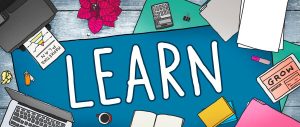In pursuing knowledge and skill, the age-old adage holds: “Whatever you have that you cannot keep, you did not get by understanding. Retention is the proof of mastery.” This timeless wisdom encapsulates the essence of authentic learning and underscores the importance of acquiring information and retaining it as a measure of genuine understanding. This sage advice highlights the importance of moving beyond the surface of knowledge, urging learners to internalize concepts, appreciate their nuances, and apply them in diverse contexts. In this blog post, we explore the integral role of retention in achieving mastery, along with practical strategies to enhance the lasting impact of acquired knowledge.
The Illusion of Knowledge Without Retention:
In our fast-paced world, where information flows abundantly, it’s easy to fall into the trap of accumulating facts and figures without truly comprehending them. Many of us may find ourselves reading books, attending lectures, or watching educational videos, only to realize that the knowledge acquired is fleeting. This transient grasp of information raises a critical question: Did we genuinely understand the material, or did it merely pass through our minds like water through a sieve?
Understanding vs. Memorization:
One must delve into the depths of the subject matter to distinguish between understanding and mere memorization. Learning goes beyond rote memorization; it involves internalizing concepts, grasping their nuances, and applying them in diverse contexts. The true mark of comprehension is the ability to recall and use the knowledge at will, not just during the initial encounter but over an extended period.
The Role of Retention in Mastery:
Retention serves as the litmus test for mastery. If knowledge is to become a part of one’s intellectual arsenal, it must be retained over time. Retention is the bridge that connects learning to application, allowing individuals to draw upon their acquired knowledge when faced with challenges or opportunities. Mastery is not demonstrated through the regurgitation of facts but by the sustained ability to recall, understand, and utilize information.
Strategies for Enhanced Retention:
- Active Engagement: Actively engage with the material by asking questions, participating in discussions, and applying the knowledge to real-world scenarios. This involvement reinforces understanding and promotes retention.
- Spaced Repetition: Implement spaced repetition techniques to review and reinforce information at intervals. This method capitalizes on the psychological spacing effect, enhancing long-term retention.
- Teaching Others: Teaching is a powerful tool for solidifying one’s understanding. I think sharing knowledge with others reinforces your grasp of the subject and exposes potential gaps in your knowledge.
- Application in Real-Life Situations: Apply the acquired knowledge in practical situations. The more you use the information in real-life contexts, the more deeply ingrained it becomes in your memory.
Embracing the Journey of Mastery:
Understanding is a journey, and mastery is the destination. To embark on this journey, one must recognize the importance of retention as proof of genuine understanding. It is not about amassing information for a fleeting moment but forging a lasting connection with knowledge that stands the test of time.
The pursuit of mastery is not a sprint but a marathon. The ability to retain what you learn is the compass that guides you on this journey. So, the next time you acquire new knowledge, ask yourself: Can you keep it? If yes, you are on the path to proper understanding and mastery.


